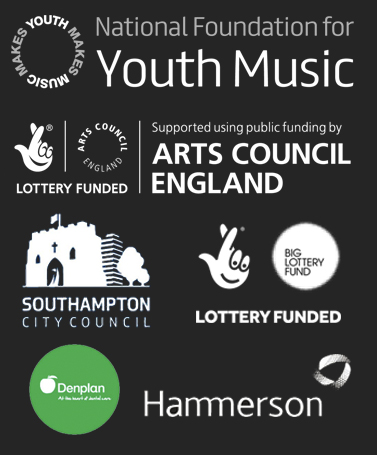Exchanging Notes is a four-year action research programme pioneering ten new partnerships between schools and music education providers who normally work in out-of-school settings. Youth Music has invested £1.2m in the project which aims to establish if this collaborative approach could bring additional benefits for young people at risk of low attainment, disengagement or educational exclusion.
Exchanging Notes aims to establish effective models of partnership working between schools and specialist music education providers in order to:
- Enable young people at risk of low attainment, disengagement or educational exclusion to achieve the best musical, educational and wider outcomes
- Promote a collective understanding of high-quality music education, stimulating fresh thinking in music and education practice.
The work delivered over 4 years through Exchanging Notes is subject to an independent longitudinal evaluation, coordinated and funded by Youth Music. The evaluation will be conducted using an ‘action research’ methodology by Birmingham City University, whereby projects will be supported to reflect on and improve their practice throughout the duration of the work.
SoCo Music Project are 1 of 10 organisations across the country to have been awarded funding through Exchanging Notes. Through our Exchanging Notes project we are working in partnership with two settings, Rosewood Free School, a school for children and young people with Profound and Multiple Learning Disabilities and Woodlands Community College, with their Inclusion Unit and LINK group. The challenges that young people face in these two settings are very different in nature and require tailored approaches to music engagement. Young people at Rosewood Free School have very complex needs and often face life limiting/threatening conditions, whilst young people at Woodlands face a number of challenges and issues in their everyday lives: non-attendance, problems at school, unstable home environments, offending peers, low self-esteem etc. and we aim to use music as a springboard for positive engagement and to improve emotional well-being.

